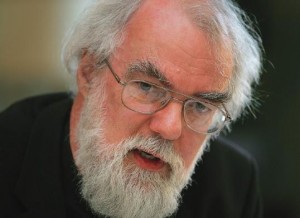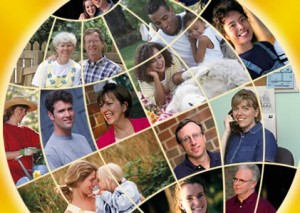Originally posted 11 Feb 2005
From Surprised by the Voice of God, by Jack Deere
This is chapter 17 from the Jack Deere’s book. The book is about how evangelical Christians, who believe the Bible is the inerrant and infallible Word of God can also believe that God speaks today, outside of the words of Scripture. His book is a magnificent treatment of the topic, which includes practical methods, theological discussion, personal testimony and helpful advice in avoiding the many excesses that may result from the application of this viewpoint.
Purchase the book at Amazon.com, Amazon.co.uk and Kalahari.net.
Augustine had an entire book of confessions. Perhaps you will indulge me for just a single chapter of my own. Here is my confession: Somewhere along the way in my academic study of the Bible, I became a Bible deist. You probably studied deism in one of your high school history classes. The framers of the Constitution of the United States were mostly deists. They believed in a religion of morality based on natural reason, not on divine revelation. They believed in God, but they didn’t think he interfered with the natural laws governing the universe. He created the world, and then left it alone – like someone who wound up a giant clock, and then left it to run down on its own. A Bible deist has a lot in common with the natural deist.
They both worship the wrong thing. The deists of the eighteenth century worshiped human reason. The Bible deists of today worship the Bible. Bible deists have great difficulty separating Christ and the Bible. Unconsciously in their minds the Bible and Christ merge into one entity. Christ cannot speak or be known apart from the Bible. At one time, Christ did speak apart from the Bible. He used to speak in an audible voice to people on their way to Damascus, give dreams, appear in dreams, give visions, give impressions, and do miracles through his servants. However, the Bible deist believes the only one who does these things today is the devil. In fact, the devil can do all the things Christ used to do. The devil can speak in an audible voice, give dreams and visions, even appear to people and do miracles. Jesus doesn’t do these things any more. He used miracles and divine revelation in the first century to wind up the church like a big clock, and then left it alone with only the Bible. The Bible is supposed to keep the clock ticking correctly. That’s why a Bible deist reads a passage like Isaiah 28:29:
- “All this also comes from the LORD Almighty wonderful in counsel and magnificent in wisdom”
and in his or her mind, translates it into something like this:
- “All this also comes from the Bible, which is wonderful in counsel and magnificent in wisdom.”
Bible deists have a tendency to substitute the Bible for God. They actually deify the Bible. Bible deists read John 10:27 like this: “My sheep listen to the Bible; I know them, and they follow the Bible.” They hear Jesus say, “If I go away, I will send you a perfect book” (John 16:7). What God used to do in the first century is now done by the Bible. If the Bible can’t do what God used to do – heal, give dreams, visions – then the Bible deist maintains that these things are no longer being done, and that we don’t need them anyway.
Bible deists preach and teach the Bible rather than Christ. They do not understand how it is possible to preach the Bible without preaching Christ. Their highest goal is the impartation of biblical knowledge. Their highest value is being “biblical”. Actually, they use the adjectives “biblical” and “scriptural” more often than the proper noun “Jesus” in their everyday speech.

 A message by Claude Nikondeha, from Burundi, delivered at Amahoro Gathering in Uganda
A message by Claude Nikondeha, from Burundi, delivered at Amahoro Gathering in Uganda Recently, Dr Rowan Williams gave an excellent speech on the issue of our responsibility towards Creation and a Christian response to environmental crises. The Bible has a clear message about caring for the environment – not just for the here and now, but also because at the end of time this planet will be renewed and restored to pre-Fall glory and be the paradise heaven of God’s Kingdom.
Recently, Dr Rowan Williams gave an excellent speech on the issue of our responsibility towards Creation and a Christian response to environmental crises. The Bible has a clear message about caring for the environment – not just for the here and now, but also because at the end of time this planet will be renewed and restored to pre-Fall glory and be the paradise heaven of God’s Kingdom.  It has been a tremendous privilege over many years to be able to (almost) seamlessly blend my ministry and work aspirations. This is something many people spend their whole lives striving for – to integrate what they do for a living with the passion in their hearts. I fell into this very young, and have been privileged to continue to do so.
It has been a tremendous privilege over many years to be able to (almost) seamlessly blend my ministry and work aspirations. This is something many people spend their whole lives striving for – to integrate what they do for a living with the passion in their hearts. I fell into this very young, and have been privileged to continue to do so. This is the new home of
This is the new home of